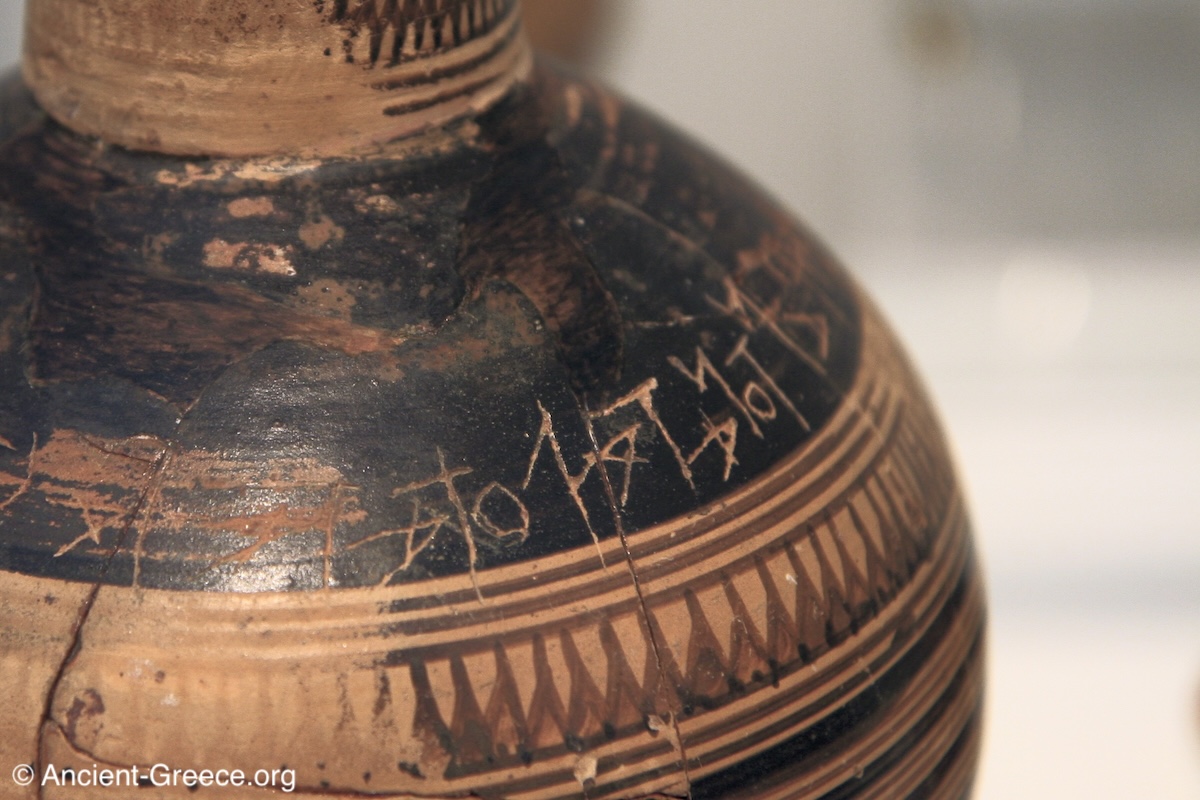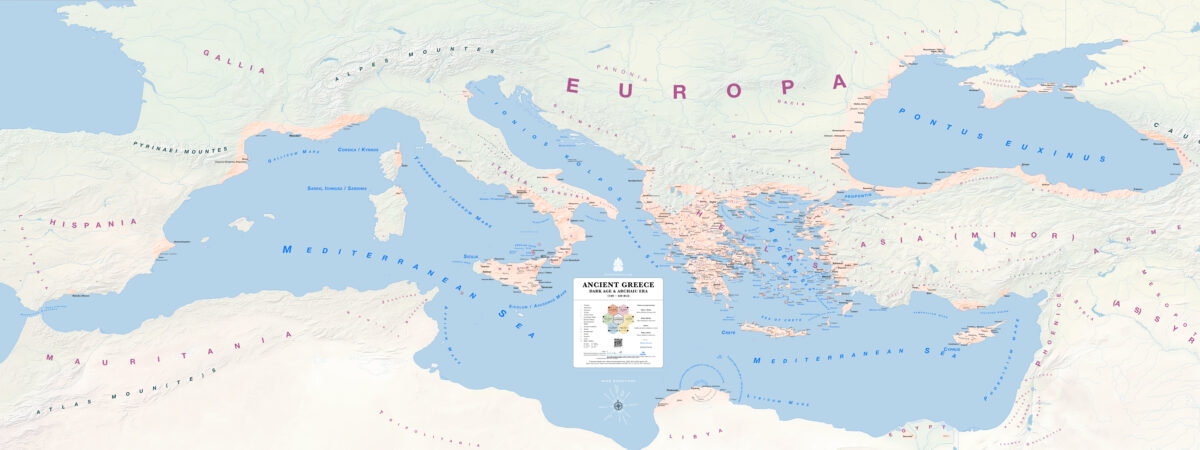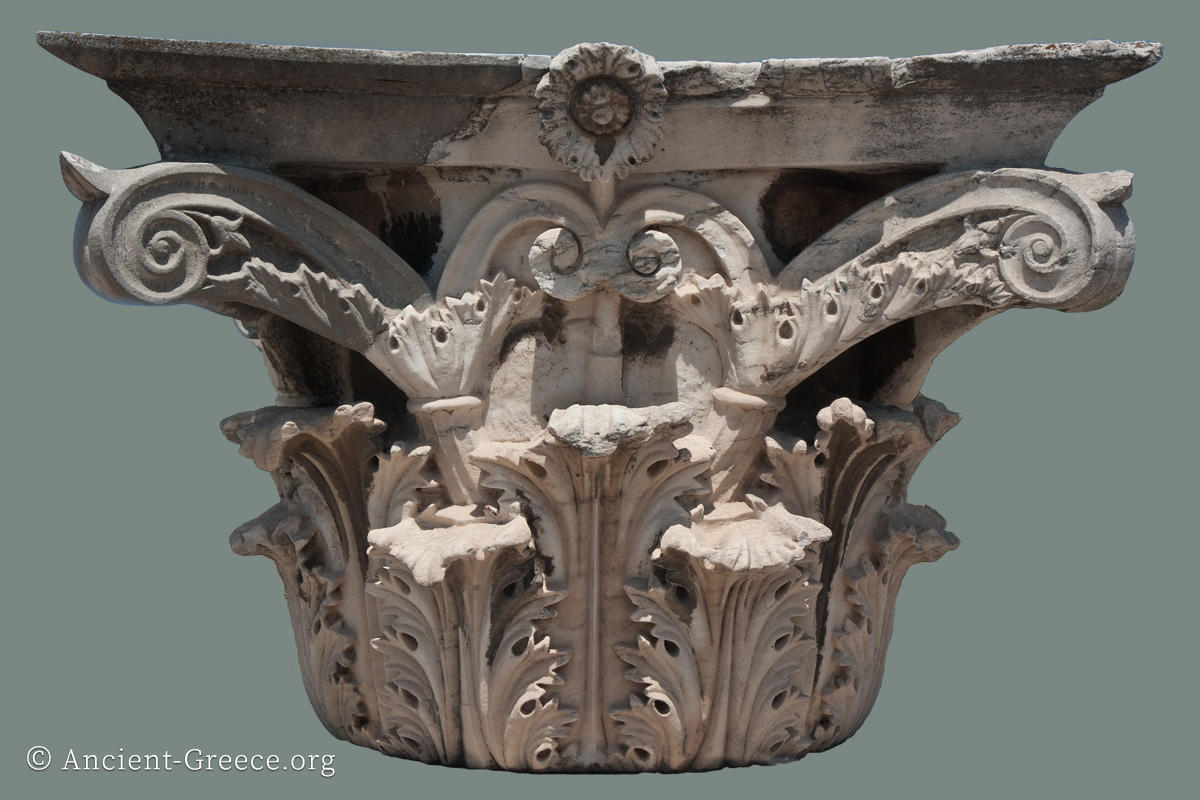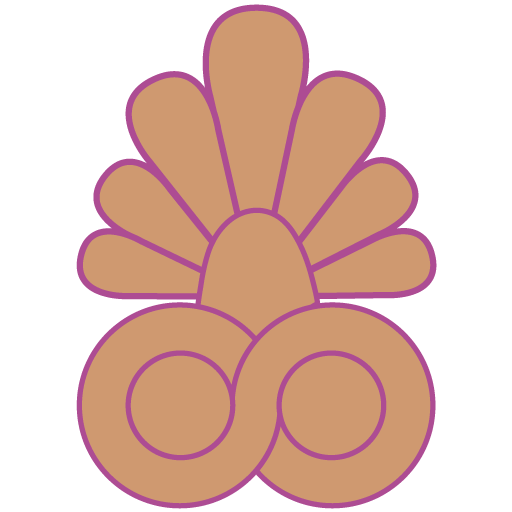
On this page:
The period of Ancient Greece that followed the Dark Age is described as Archaic and lasted for about two hundred years from 700 to 480 BCE.
In our day, the general use of the term “archaic” means anything “old-fashioned”, but Archaic Greece was anything but old-fashioned in its era. Instead, it was an exciting, adventurous, and forward-thinking period that gave birth to many of the ideas, concepts, and innovations we came to associate with Ancient Greece.
The Archaic period of Greece was a cauldron of geographical and cultural expansion which carried the mark and contributions of a well developed civilization.
The Greek achievements in the Archaic age are more remarkable considering that the era began in the virtual ashes of the Dark Age before growing into one of the most renown civilizations in the world.
Colonization of the Mediterranean and Black Sea Coasts

Greek city-states of the Archaic epoch spread throughout the Mediterranean basin through vigorous colonization. As the major city-states grew in size they spawned a plethora of coastal towns in the Aegean, the Ionian, Anatolia (today’s Turkey), Phoenicia (the Middle East), Libya, Southern Italy, Sicily, Sardinia, and as far as southern France, Spain, and the Black Sea.
The impetus for early colonization was commerce, but as the population of Greek cities grew, they systematically sent part of their population to found colonies around the Mediterranean. The initial wave of colonists was usually all male who intermarried with local women, and the government was usually formed by oligarchs.
The spread of Greek colonies facilitated commerce and cultural exchange of ideas across the Mediterranean and Black sea coasts.
These states, settlements, and trading posts numbered in the hundreds, and became part of an extensive commercial network that involved all the advanced civilizations of the time. As a consequence, Greece came into contact, aided, and benefited from the exchange of goods and ideas between ancient Africa, Asia, and Europe during this period.
Through domination of commerce in the northern Mediterranean, aggressive expansion abroad, and competition at home, several very strong city-states began emerging as dominant cultural centers, most notably Athens, Sparta, Corinth, Thebes, Syracuse, Miletus, among other.
Masters of the Waves

During the Archaic Era, trade in the Mediterranean increased, with large merchant ships crisscrossing the Mediterranean, establishing colonies and markets along the coasts of today’s Black Sea, Lybia, Italy, France, and Spain, and defending their land with advanced warships like penteconters, biremes and triremes.
The early Iron Age is dominated by triaconters, (thirty-oared), and penteconters.
The largest ships of the early era were penteconters which were powered by 50 oarsmen, rowing side by side along each ship side. Around the 8th century BCE, the Phoenicians added a second row of oars to create the bireme. In this arrangement rowers did not sit one behind the other but in two levels that allowed more rowers to fit in the same size hull.
The major innovation in naval warfare came in the form of ships that fight each other instead of being platforms for troops. So, biremes had a ram to sink enemy ships.
Sometime after the 7th century BCE, Greek shipyards added an outrigger to the hull, to allow for a third row of oars, making it a “trireme” (τριήρης, meaning “having three rows of oars”), with each man pulling one oar.
The trireme was a long, maneuverable war vessel with three banks of oars (a total of 170 oarsmen). A natural development from biremes, a trireme was a light and fast rowing ship with a powerful ram.
During classical naval warfare, the entire ship was a missile. In battle, foes maneuvered at sea with the goal of ramming and rupturing the joints of the enemy ship, thus sinking it or disabling it.
The first record of ships’ use of a ram to sink enemies is from the battle of Alalia in 535 BCE where 60 Greek pentekontes ships from Phocaea defeated a Punic-Etruscan fleet of 120 ships while emigrating to the western Mediterranean and the nearby colony of Alalia (now Aléria, in Corsica).
A Cultural Evolution

Sometime between 950 and 750 BCE ancient Greeks introduced vowels to the Phoenician script to create the Greek alphabet.
The earliest Lyric poets appear around 650 BCE, and Sappho was born in Lesbos. The ideas of pre-Socratic philosophers like Thales (625 – 545 BCE), and Pythagoras (569 – 475 BCE), as well as treaties and laws were regularly committed to written text.
In art, “red figure pottery” developed in Athens, while Kore and Kouros statues begin a tradition of monumental figurative sculpture that continues to our day.
Pan-Hellenic festivals got established and aided in the coming together of Greeks from across the mediterranean world to pay their respects to their gods, to strike new trade and political deals, and to enjoy the games in places like Olympia, Delphi, Isthmia, and Nemea among other. These festivals often included athletic, poetry, music, and drama competitions.
The Olympic Games were the most renown among several such sanctuary festivals that took place in Ancient Greece.
The first Olympic Games were held in 776 BCE and the last in 393 CE. After their revival in Athens in 1896 CE, the Olympics have became the biggest sports event in the world with global participation.
Prelude of the Classical Era
During this epoch Greek population recovered and organized politically in city-states (polis, plural: poles) comprised of citizens, foreign residents, and slaves.
The new complex social organization of the city-states led to new governance structures, fueled by a rapidly expanding aristocratic class.
Common governments of the era were Tyrannies, where well connected and powerful aristocrats assumed the governance of their city. They were sometimes benevolent, but often “tyrannical”, leading to the negative connotations of the word we associate today with “overly-repressive” governments.
But over the course of two centuries, the reliance on a “benevolent single-person’s absolute authority” eroded to the point where a new system of political organization was inevitable.
Respect for the “laws-above-persons” was a required precursor for the Democratic principles that we see developed first in Athens during the late Archaic and early Classical era. This became a central theme of Socratic philosophy a century later, in the Classical era.
Toward the end of the Archaic era, the “authority of the commonly agreed laws” became the goal to strive for. City-states constantly tweaked their laws, the writing of which was often assigned to wise men.
In Athens, Draco’s laws (written around 620 BCE) remain the synonym for “harsh penalties” to our day. They were replaced with more humane ones by Solon in 594 BCE.
In a pivotal moment in governance innovation, Kleisthenes reformed the Athenian code of laws, and established a democratic constitution in 508 BCE.
Chapters
This history of Ancient Greece is divided into the following chapters:
- Timeline
- Introduction
- Overview
- Geography
- Stone Age
- Bronze Age
- Dark Ages
- Archaic Era
- Classical Era
- Hellenistic Era
Related Pages





